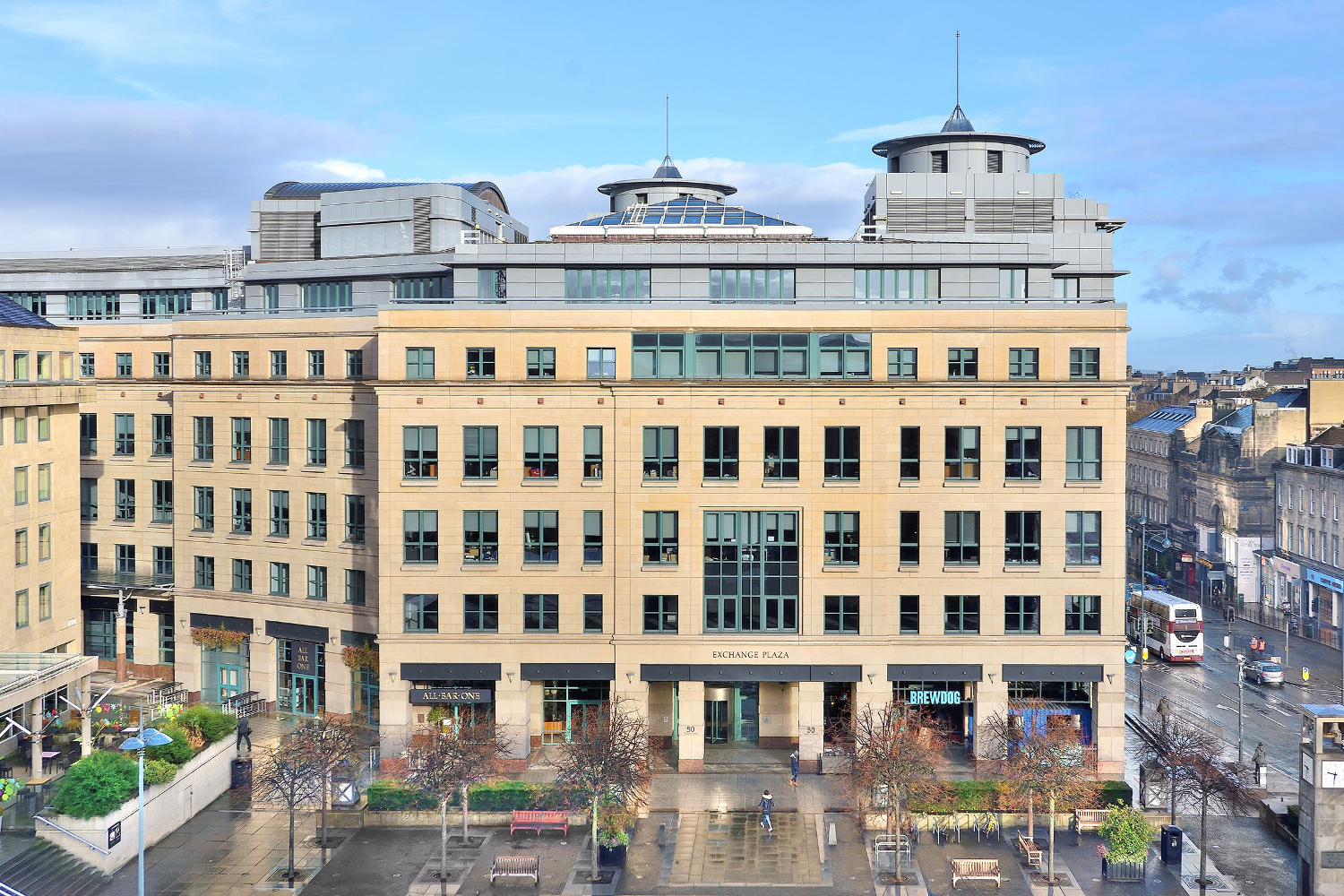Scottish commercial property market perceived to be in ‘downturn phase’
The Brexit impasse is contributing to perceptions that Scotland’s commercial property market is in the downturn phase of the property cycle, according to a new survey.

Exchange Plaza, Edinburgh
Half of respondents in Scotland to the Q3 2019 Commercial Property Market Survey from the Royal Institution of Chartered Surveyors (RICS) were found to have sensed that the overall market is in the downturn phase, with anecdotal evidence suggesting that Brexit is having an increasingly detrimental impact on market activity.
In the investment market, the highest proportion of respondents in Scotland since 2016 said that enquiries from potential investors were lower than in the previous quarter. The net balance for overall investment enquiries in Scotland during Q3 2019 was -34%, meaning that 34% more respondents said that investment enquiries fell than said they rose.
Interest in investing in retail was the weakest according to respondents, but investment enquiries were also reported to have fallen in the industrial (a net balance of -14%) and office (a net balance of -20%) sectors.
In the occupier market, tenant demand reportedly fell at the headline level in Scotland for the fourth consecutive quarter, with the net balance slipping to -22%, from -3% previously. Once again, the retail sector continues to drive the overall decline, with the weakest reading since Q3 2008 - a net balance of -70%, which is the weakest across the UK regions. Demand for office and industrial space in Scotland was reported to be broadly flat.
Looking ahead, Scottish surveyors are cautious about rents in over the next quarter. The overall net balance for three-month rental expectations is its weakest since Q2 2016 at -23%. However, this is driven by pessimism regarding retail rents, with a net balance of -65%. Expectations for office and industrial rents are broadly flat.
Capital value expectations over the next three months in Scotland also vary by sector. For the retail sector, the negative trends of recent quarters show little sign of easing and projections continue to signal a sharp decline in capital values over the next quarter. Scottish respondents though are more positive about the value of industrial and office property, with the balance of respondents pointing to modest growth in capital values in both sectors in the near term.
Richard M Smith of Allied Surveyors in Inverness said: “The market over the last three months has been affected by political uncertainty. Clients tell us that they will invest when the uncertainty is removed, regardless of how that is achieved.”
David Castles of Ian Philp Glasgow Ltd said: “Retail continues to suffer as the high street adjusts. Office and industrial sector capital values will improve but supply of prime office developments is restricted, and more investment is required which hopefully will improve once market uncertainty is reduced.”
Tarrant Parsons, RICS economist, added: “Although half of respondents in Scotland now perceive the market to be in a downturn, the fact that capital value expectations are still positive suggests a relatively soft landing for the commercial real estate sector is anticipated overall.
“That said, the fallout for retail is altogether more severe. It remains to be seen what impact the latest Brexit developments have on confidence across the sector, but with the picture unlikely to become clear until into the New Year it may well mean hesitation continues over the near term.”







